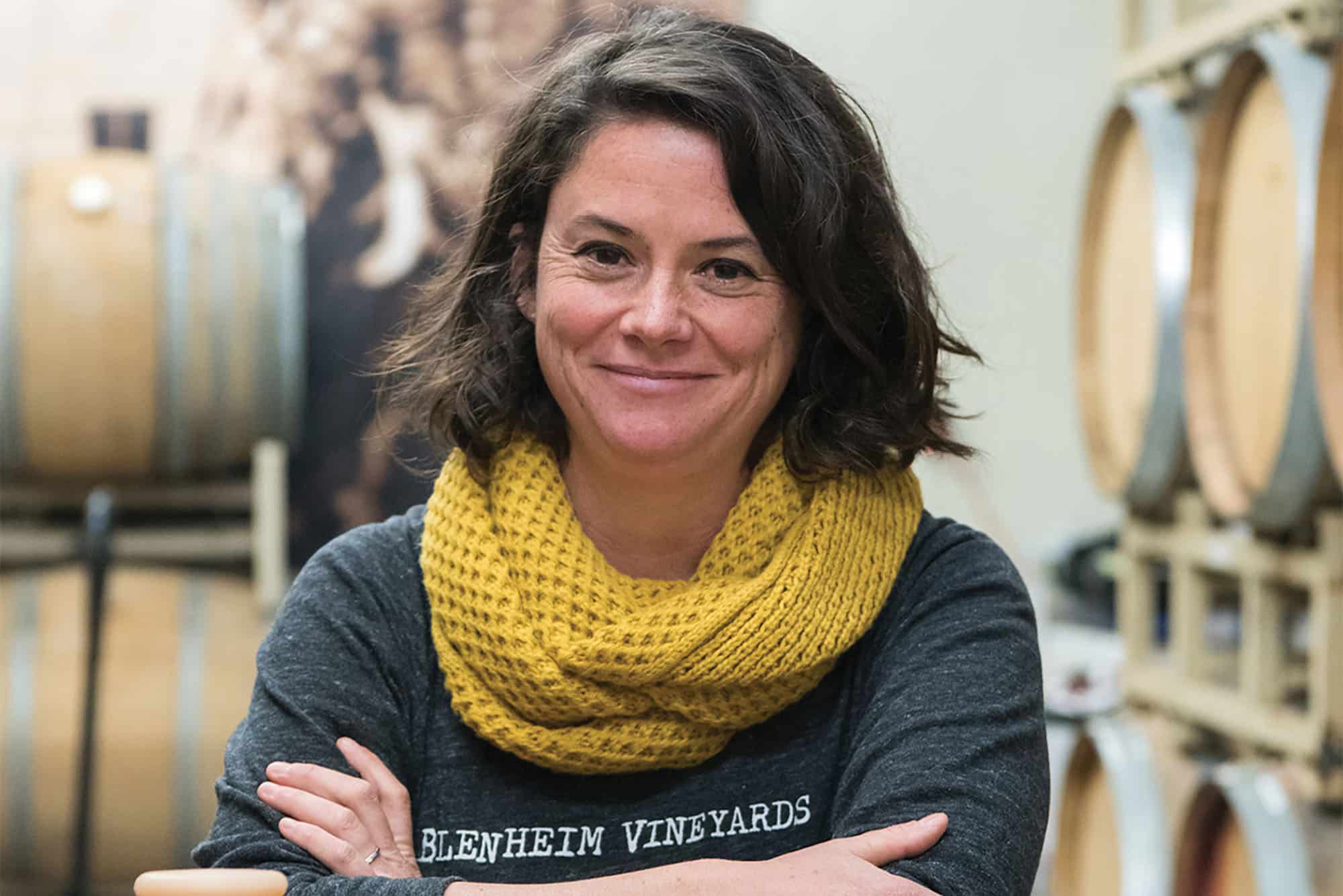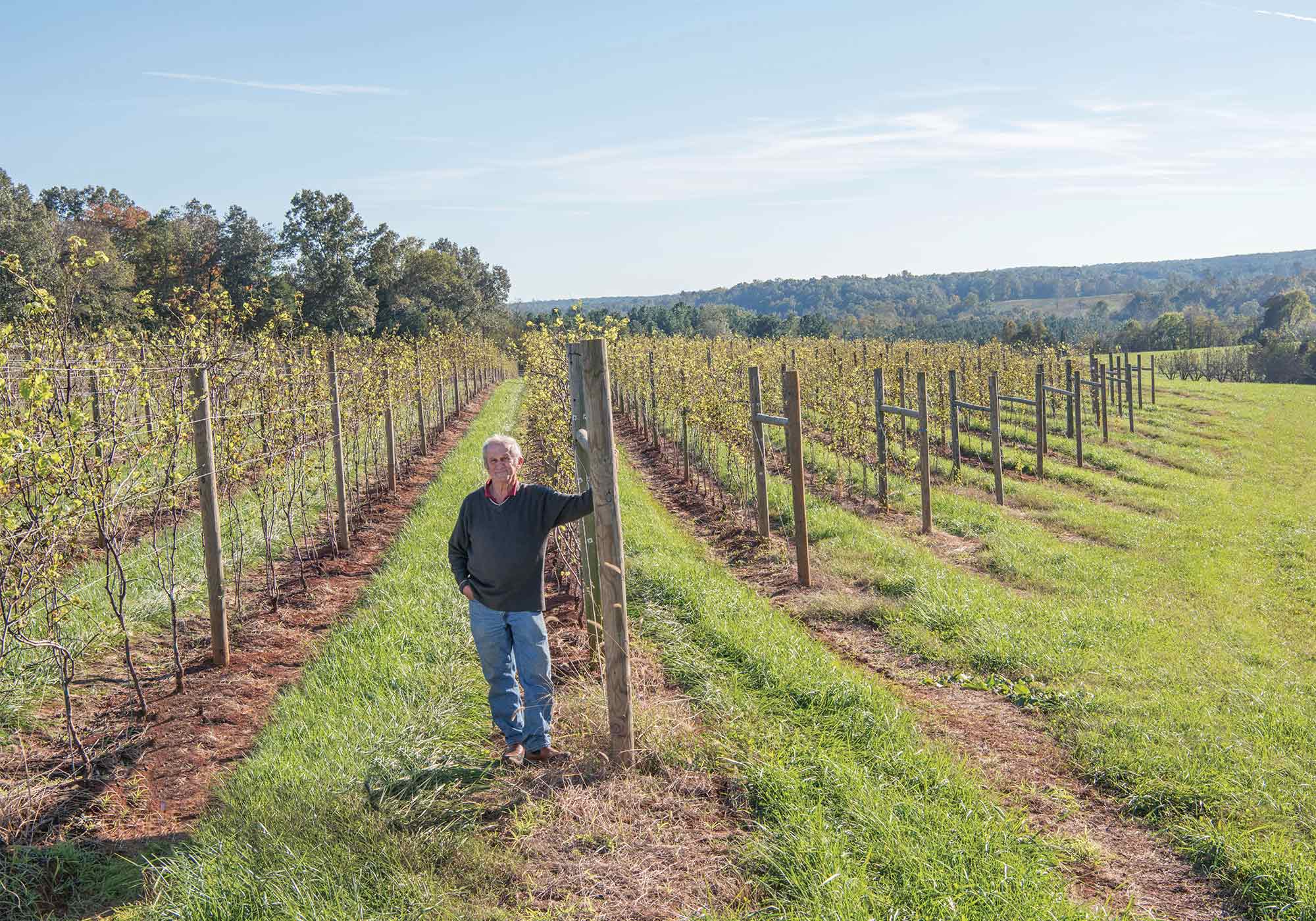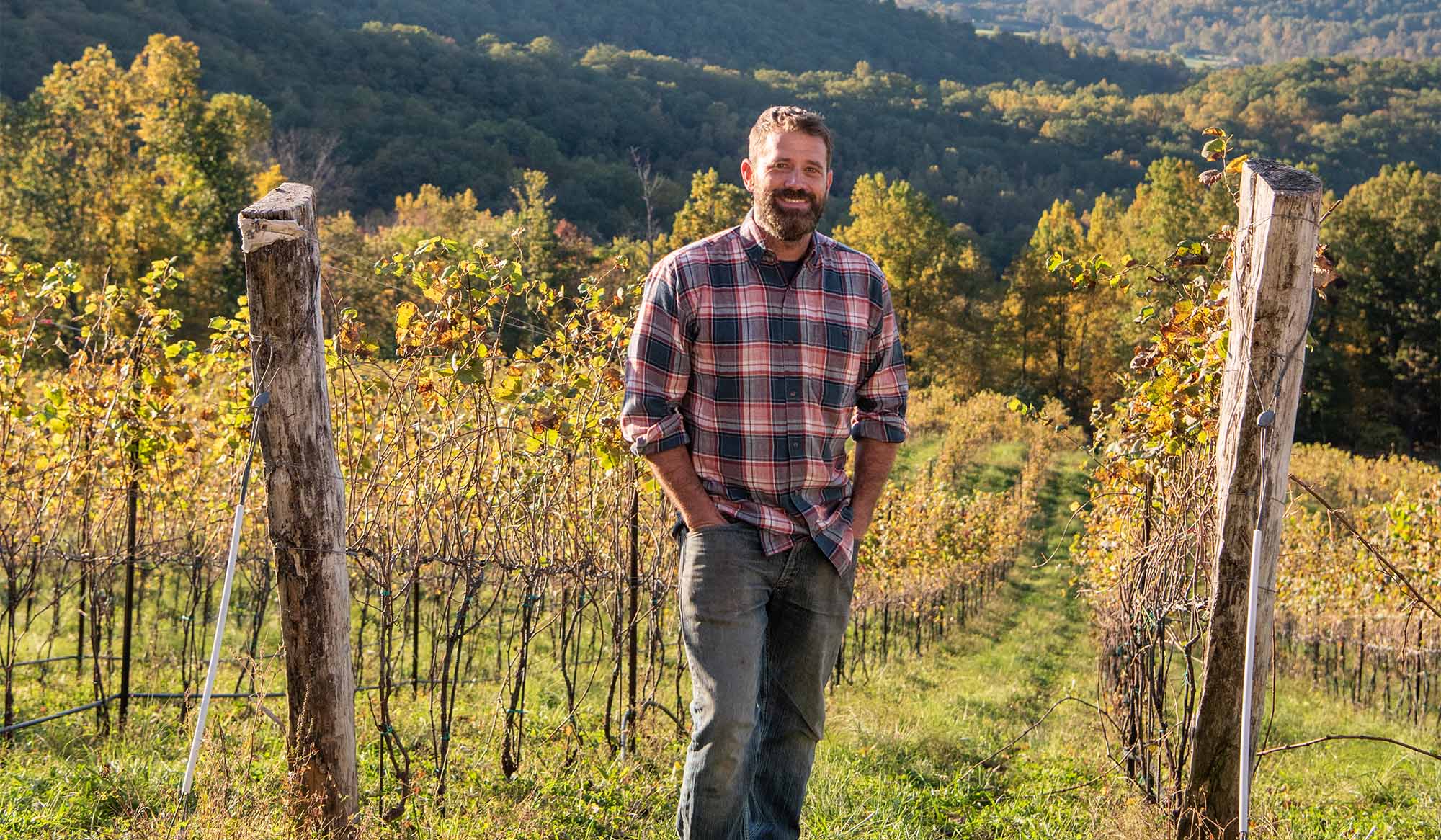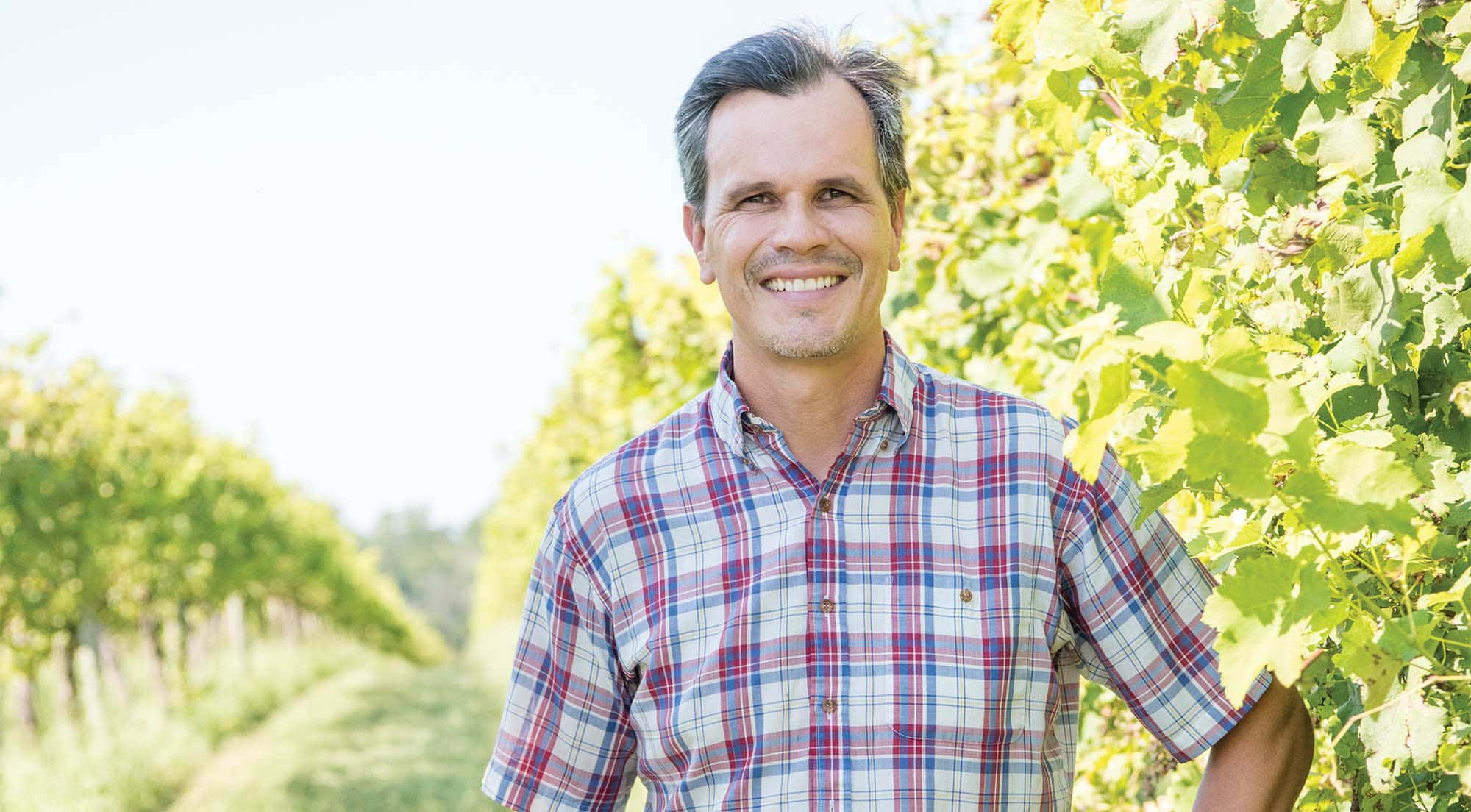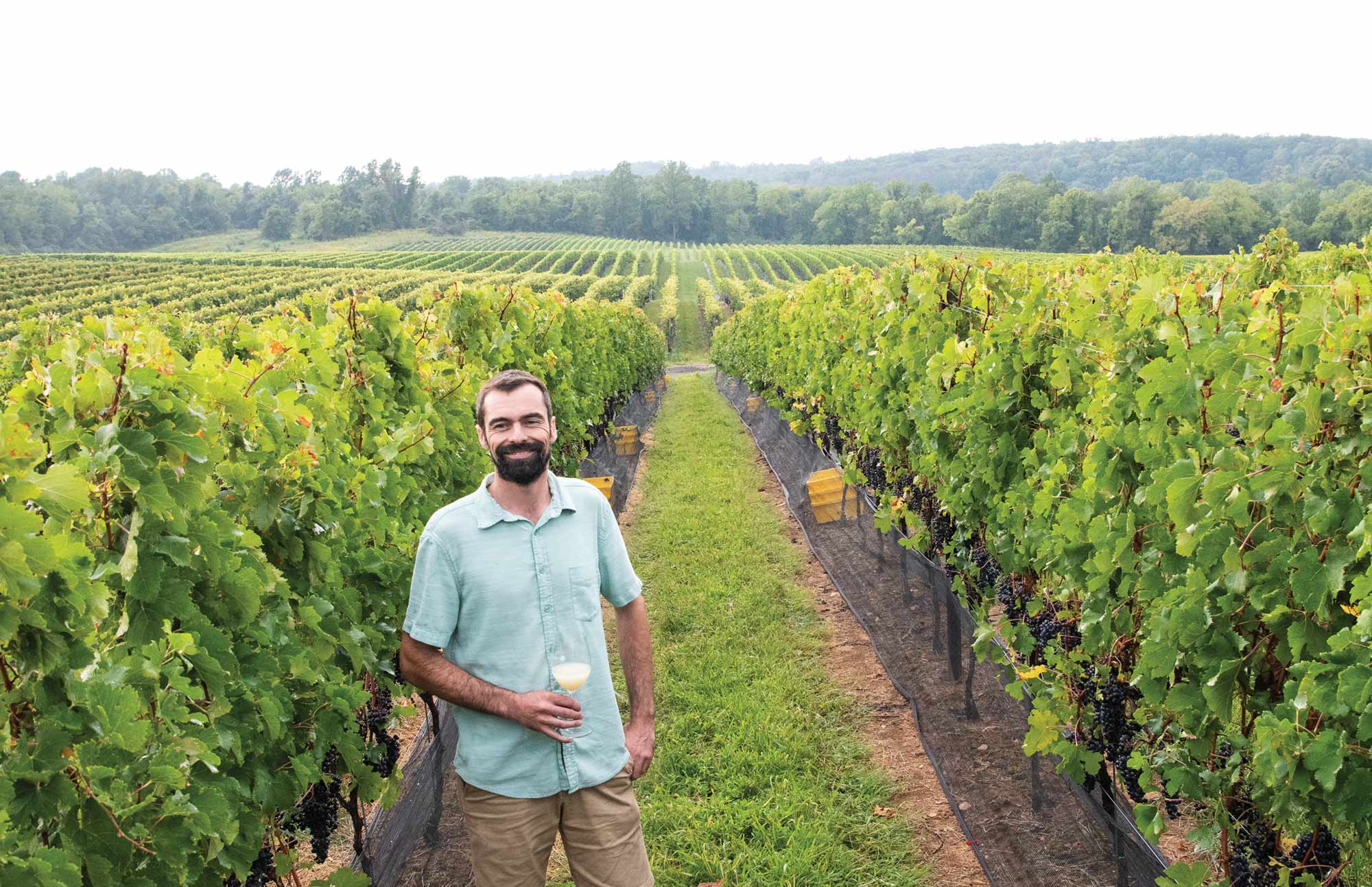Rock and roll front man, Dave Matthews of the Dave Matthews Band once said, “…my response to being overpaid is that I should pay it back to my community in some way.” By establishing Blenheim Vineyards and hiring rock star winemaker Kirsty Harmon, he definitely has. Although Harmon is, in most respects, a traditional winemaker, her vast scientific background allows her to maintain better control over some of the more technical aspects of the winemaking process. And she uses this control to create approachable, young, fruit-forward dry wines representative of Dave’s casual Charlottesville respite.
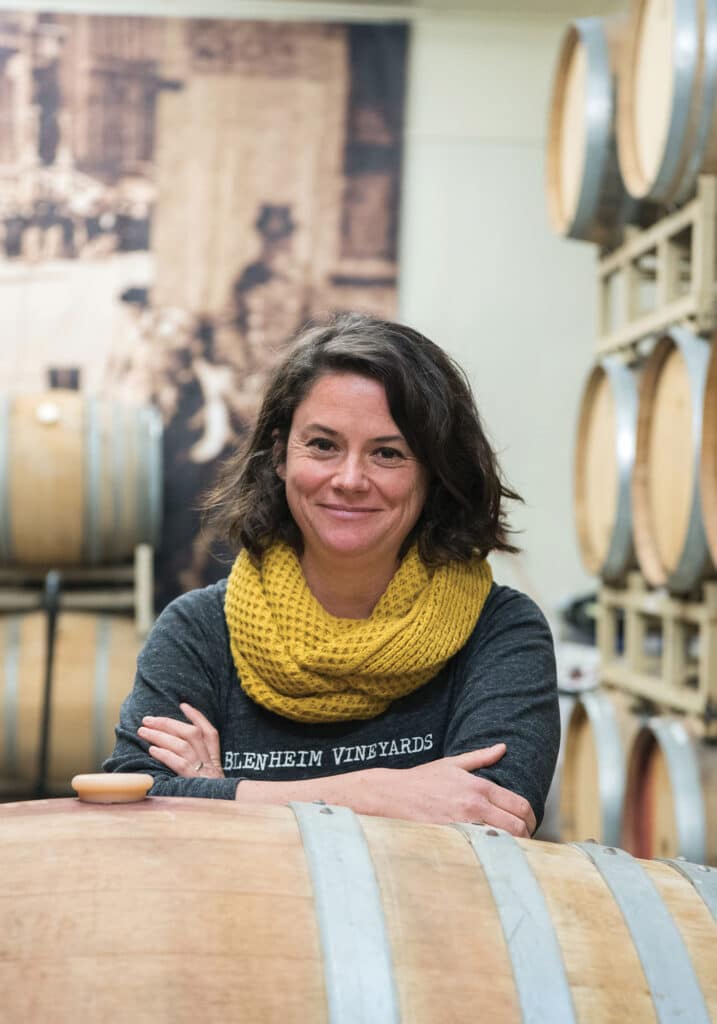
Do you feel that your wines compete with Dave’s fame?
Celebrity draws attention, but it has little to do with the quality of the wine. So, of course, I don’t mind if Dave Matthews Band fans come in because of his fame, but I do hope they return because the product they tasted has also won their hearts.
“The world and the universe are far more wonderful if there’s not a puppet master.” Seems like Dave lives by his words?
Yes. He’s humble enough to give me full control of what goes into the bottles. They are filled with affordable, approachable young and clean dry wines with fruit-forward profiles.
Winemaker Kirsty Harmon Starts with Science
When you got your start in the winemaking industry, you worked with a different famous local individual—Virginia Winemaker Gabriele Rausse. Tell us about that.
My background is in yeast genetics, and for several years, I worked in a microbiology lab at UVA. But it wasn’t what I expected. Working in the lab was like being the protagonist in the movie Groundhog Day—the redundancy of each day was infuriating for me. So, I changed gears and worked as an event planner. That’s when I was noticed by, Patricia Kluge, owner of the fledgling Kluge Estate Winery (now Trump Winery).
The job at Kluge quickly morphed into “winery apprentice.” The work helped me to develop an appreciation for wine, it got my footing in the industry and it enabled me to train with my mentor, Gabriele Rausse, “father of the Virginia wine movement.” When he realized I had a degree in biology, he encouraged me to become a winemaker. So I went back to school and graduated with an M.S. in Viticulture and Enology from the University of California at Davis, spent six months at Domaine Faiveley in Nuits St. Georges, France, and worked as a harvest intern at Craggy Range Winery in New Zealand. I officially joined Blenheim Vineyards in 2008.
Blenheim Vineyards is considered a “Sustainable Virginia Winery” and is certified Virginia Green. As a scientist, did Blenheim’s green efforts have any impact on your return to Virginia to work there?
Unlike places such as Napa, there’s a lot of opportunity in the Virginia wine industry. So my intention was always to come back. But I was excited to see that Blenheim is environmentally conscious; anytime you can lessen your impact, you should. The installation of solar panels on our tasting room offsets our carbon footprint by 248 tons of carbon dioxide, which is equivalent to planting about 5,000 trees in Virginia’s parks. We also, in five years, filled 1,600 kegs, which prevented approximately 46,000 bottles from going into landfills.
Turning Science Into Art at Blenheim Vineyards
With a background in biology, do you consider winemaking more science than art?
Of course! The foundation of vinification resides in the science of making wine palatable: fermentation can be attained with a varying degree of success. But once the grapes have been turned into wine, you have the essentials to begin the “art” of blending, which is the creative and personal side of winemaking.
How “artsy” are you in the blending process?
I try to make straight varietals, so blends tend to be the same grapes from different vineyards or blocks, not from different varieties.
It has been said, “All grapes make good wine if you have a good winemaker.” What, to you, makes a good winemaker?
To let the fruit speak for itself and to let the potential of the grape shine through, I don’t like to interfere too much in the process. So I take a traditional “hands-off” approach to winemaking.
Let the fruit speak for itself and let the potential of the grape shine through.
~ Winemaker Kirsty Harmon
You were invited to speak at the 2017 Virginia Wine Summit about “how the future of progress and growth in the Virginia Wine Industry is through winery driven research and experimentation.” What experiments have you conducted?
I have been working with hands-off techniques such as carbonic maceration, which is the process of fermenting grapes in an anaerobic environment, meaning the fermentation process actually happens inside the grape, without oxygen. Simply, I use the grapes as their own tool instead of adding additional products to them.
In addition to the hands-off approach, how else would you describe your winemaking style?
My wines have a short aging process; nothing’s in the barrel longer than 10 months. The Virginia microclimate produces lots of rain, which encourages an early harvest. So it’s the only style that makes sense to produce.
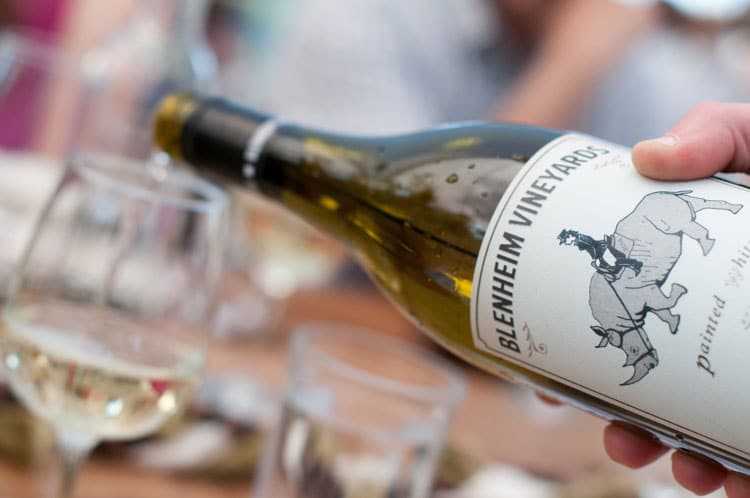
Winemaker Kirsty Harmon’s Final Thoughts
But people in the States think that better wines need to be aged.
People have also been conditioned to believe that a good wine needs to be corked. Conversely, the screw cap offers a tighter sealed, preventing oxygen from entering the bottle, keeping the wine crisp and fresh. I changed all the bottles at Blenheim to modern screw caps for this reason.
Screw caps trump cork. How about stainless versus oak barrels?
Actually, both have their place in winemaking. The barrels are a way of influencing the taste of wine without any tampering from me.
Of your wines, which one pairs best with pizza?
Cabernet Franc. It has an herbaceous side to it, like oregano. And it’s fruity, so it won’t fight with the toppings. [To learn more about Virginia Cab Franc, see our article “The Virtues of Cabernet Franc.“]
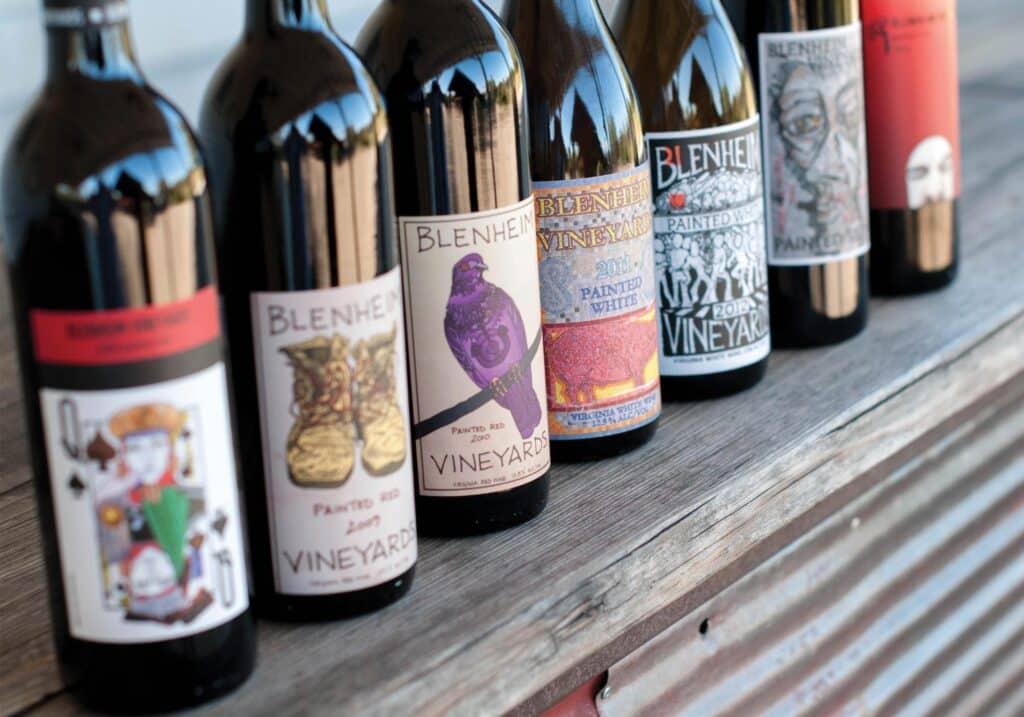
Science aside, what is your favorite part of the job?
I like that I can go outside and harvest fruit, be in the lab, and also pour wine and have a direct interaction with our guests who are drinking my product. It’s different every day, and that’s key for me.
“Eat, drink, and be merry, ’cause tomorrow we’ll die.” – DMB
Definitely!
You can find winemaker Kirsty Harmon at Blenhemin Vineyards, managing and overseeing the winery, tasting room, and vineyards, while also making wines since 2008. Read about more of Virginia’s finest winemakers in the Food & Drink section.
Learn more about the life and work of winemakers with Wine & Country Life’s editors. Maya Hood White is the winemaker at Early Mountain Vineyards. Gabrielle Rausse has made wine at many Virginia wineries and is considered the father of the modern wine movement. Get to know Nathan Vrooman of Ankida Ridge Vineyards, Stephen Barnard of Keswick Vineyards, Doug Fabbioli of Fabbioli Cellars, the most awarded winemaker, Luca Paschina of Barboursville Vineyards and Shannon and Caitlin Horton of Horton Vineyards. The annual Governor’s Cup Awards honors the best Virginia wines each year.
~
ALLISON MUSS, an advertising copywriter, copy editor, newsletter publisher and freelance writer, has had other food-centric work published in various regional and local publications.
R. L. JOHNSON is our co-publisher and creative director, Robin Johnson Bethke, who began her career as a professional photographer in Los Angeles before moving into graphic design and art direction when she relocated to Charlottesville in 1994. As our company’s co-founder and visionary, she enjoys all aspects of the publishing process from story conception to graphic design to photography. Her work is often seen in many of our publications.

